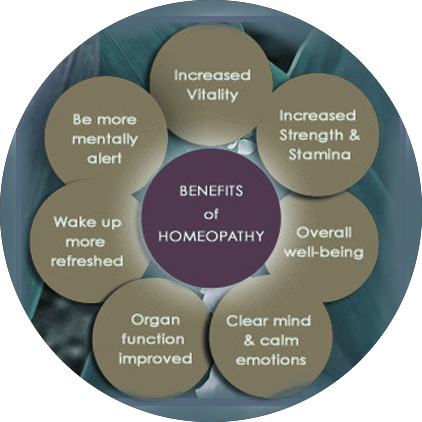
Are you tired of the same old healing methods? Do you ever wonder if there is something more to it than just conventional medicine? Today, many people are recognizing that health is not just a physical matter. People are looking for holistic solutions that consider all aspects of a person’s well-being including their body, mind, and spirit.
What is homeopathy?
Homeopathy is an alternative medicine system based on the principle of “like cures like.” Practitioners use highly diluted substances to stimulate the body’s self-healing processes, aiming to treat symptoms and underlying causes of illnesses naturally and holistically.
Homeopathy was founded in the late eighteenth century by Samuel Hahnemann. Using remedies made of plants, minerals, and animals, homeopathy follows the process that the body has the ability to heal itself when given the necessary stimulus. It focuses on the individuality of the person being treated and low doses. The treatment strives to get the body back in balance and improve its general health by considering the mental, emotional, and physical balance.
How does homeopathy differ from conventional medicine?
Homeopathy differs from conventional medicine by focusing on individualized treatment using diluted remedies, while conventional medicine targets specific diseases with standardized treatments. Homeopathy emphasizes holistic care, aiming to treat the whole person rather than just symptoms, contrasting with conventional approaches.
Conventional medicine works on pharmaceuticals and surgery for different diseases and usually, the treatments have scientific evidence and are clinically tested. On the other hand, homeopathy works with the healing power of the body itself, and the medicines are very individualistic, taking into view each and every symptom and the constitutional. This difference in philosophy, in a nutshell, separates homeopathy from most other kinds of medicines.

What are the criticisms of homeopathy?
Critics argue that homeopathy lacks scientific evidence and relies on placebo effects. They claim that its remedies are too diluted to be effective, questioning its legitimacy as a medical treatment due to limited empirical support.
Skeptics typically claim very low efficacy of homeopathic remedies because the clinical trials have been too few and in general, no scientific validation is found for the same. Homeopathic treatments are highly diluted, leading to the very minute to negligible availability of the actual drug and the opponents of the theory claim the effect to be nothing other than placebos.
Nevertheless, various claims of positive results and recommendations of this concept and its ideology can still be observed from the homes and mouths of supporters and practitioners of the subject matter.
Are there any benefits to homeopathy?
The benefits of homeopathy are personalized care, minimal side effects, and holistic treatment. They argue that it can effectively manage chronic conditions, enhance overall well-being, and complement conventional medicine, offering a gentler approach to healthcare.
Most people like the fact that homeopathy is a process for treatment that deals with each patient based on his or her unique symptoms and way of life. The mild nature of homeopathic remedies supposedly tones down the action of unwanted side effects, hence becoming very popular with those who show sensitivities to ordinary medications.
Even though there is mixed scientific evidence for its efficacy, some studies, as well as a number of anecdotal reports, do prove that homeopathy does benefit certain patients, particularly where issues related to chronic conditions and those caused due to stress are concerned.
Do Homeopathy Practitioners Attend Medical School?
Homeopathy practitioners typically attend specialized homeopathy schools rather than conventional medical schools. These programs focus on homeopathic principles, remedies, and holistic health practices, offering training distinct from traditional medical education.
Study courses on homeopathy are varied across institutions in different countries. The coursework is taken in anatomy, physiology, and philosophy of homeopathy in most cases. The programs range from diploma courses, and advanced degrees to clinical practice or internship in some cases. In countries that highly regulate homeopathy, practitioners are supposed to obtain certification examinations in order to legally practice. In terms of holistic health, homeopathy schools provide focused training and the practitioners do not receive biomedical education like conventional doctors. They are specialized in natural remedies and individualized care.

Is homeopathy scientifically proven?
Homeopathy is not widely accepted as scientifically proven. Critics argue that the lack of empirical evidence and reliance on anecdotal reports challenge its legitimacy as a scientific treatment, with many studies showing inconsistent or inconclusive results.
While some studies show positive outcomes, the scientific community largely remains skeptical about homeopathy because of inherent methodological flaws, small sample sizes, and inability to reproduce results. Most of the principles put forth by homeopathy violate well-established scientific principles, especially in regard to remedy dilution and potentiation. For all these reasons, most mainstream organizations that deal with medicine do not acknowledge homeopathy as a legitimate scientific treatment.
Can homeopathy be used alongside conventional treatments?
Homeopathy can complement conventional treatments, offering integrative care that supports overall well-being. Many practitioners use it as a supportive therapy, potentially enhancing treatment outcomes and providing a more holistic approach to healthcare.
Integrating homeopathy with conventional medicine can provide a complete treatment plan managing symptoms as well as the causes. It will not necessarily replace conventional care but will help one recover more quickly, cope with stress better, and healthfully. This type of integrated approach is invaluable in the case of chronic conditions where lifestyle modifications, coupled with holistic care, bring about appreciable improvement in the quality of life.
What conditions are commonly treated with homeopathy?
Homeopathy is often used for chronic conditions like allergies, asthma, migraines, and stress-related disorders. Practitioners also treat skin conditions, digestive issues, and emotional health concerns, emphasizing individualized care and holistic treatment.
It is also very suitable for a wide array of conditions, more so those that present complex symptoms or have an underlying emotional cause. Although variable in its scientific support, some patients reportedly turn to such treatments to find relief from chronic pain, fatigue, and anxiety. Homeopathic remedies are also used to take care of seasonal allergies and skin conditions like eczema, which emphasize more natural and individually tailored treatments toward re-establishing balance and health.
Wrapping Up!
Are you ready to try a more holistic way towards your wellness? Homeopathic medicine can be viewed as unique because it treats people holistically, i.e., takes into account all their physical, mental, and emotional states before prescribing any remedy. If therefore this field sounds interesting enough or even if becoming a doctor represents a career path worth pursuing then let me assure you that finding true health through holistic living shall never be regrettable.
